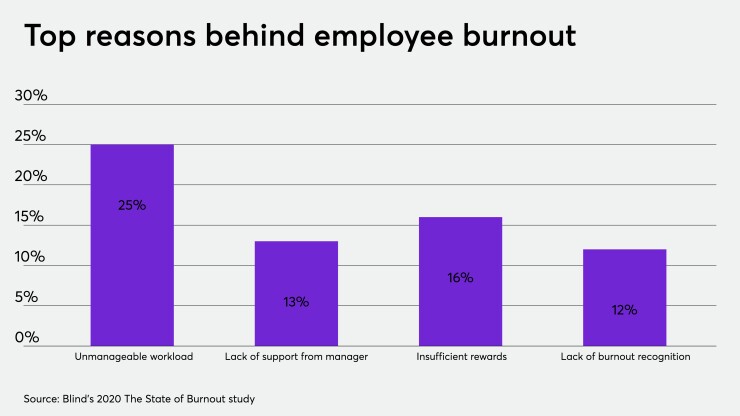Employees aren’t the only ones
More than half of managers say they feel overworked and 84% feel responsible for the
Read more:
But while employees have been encouraged to share their mental health challenges and utilize employee benefits, managers often feel more cautious about the ramifications around sharing that they’re struggling too, says Gail Golden, an organizational psychologist and author of
“Managers are people just the same as everybody else, but part of a manager's job is to look as if you've got it together, even sometimes when you don't,” Golden says. “Managers need to be very conscious of what they're choosing to share because that will set the tone for the rest of the group.”
Leaders have had to learn to recalibrate their management style
“A lot of managers and leaders are now being more open about their own struggles — it’s not like, ‘Oh, I’m falling apart, I can’t handle anymore,’ but rather sharing their worries and fears,” she says. “For the most part, that’s been positive and has helped build connection at a time when connections feel pretty frayed.”
This open communication has also given managers an opportunity to rethink their engagement with employees, since face-to-face interactions are no longer possible. Managers need to become more attuned to the signals that an employee is struggling and also trust that they’ve created an environment that people feel safe to share in.
“Good managers manage people differently and tailor their style to the type of employee they have,” Golden says. “It is more challenging now and it’s more draining to energize people in this remote setting.”
Read more:
While employers have worked on building closer relationships with their employees, it’s often at the expense of their own well-being, Golden says. Managers need to take care of themselves and prioritize their own wellness to be the example for their teams.
“It is more challenging now and it’s more draining to energize people in this remote setting,” Golden says. “The manager has to take care of themselves — do things you enjoy, take breaks. All of those things are more critical than ever for a manager to be able to perform at his or her peak.”






